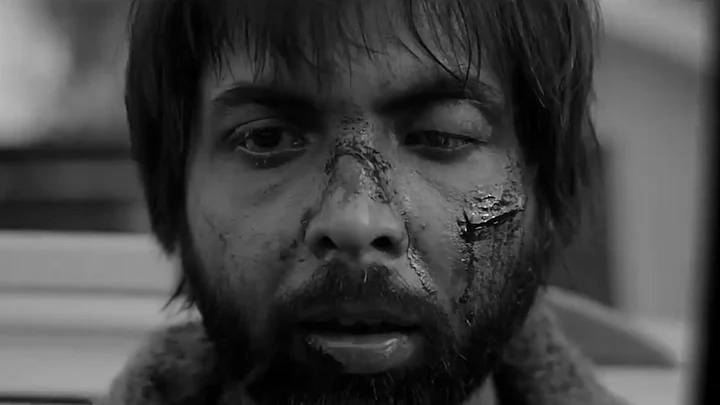Karan Tejpal’s debut feature, Stolen, is a lean, mean survival thriller brimming with rage and big ideas—about privilege, entitlement, apathy, corruption, misdirected anger, mob mentality, misinformation, patriarchy, caste, and so much more.
Yet, it has no time for melodrama or sermons. Over 94 minutes, the film races through its plot with purpose.
Premiering at the Venice Film Festival in September 2023, Stolen has been featured at festivals globally. Now, it’s finally released on Amazon Prime, produced by Gaurav Dhingra and backed by notable names such as Anurag Kashyap, Kiran Rao, Nikkhil Advani, and Vikramaditya Motwane.
Cutting to the Chase
The film doesn’t waste time with exposition.
Set in a fictional state in North India, it begins in medias res with Jhumpa Mahato's (Mia Maelzer) baby, Champa, getting stolen from her arms at a railway platform while she’s asleep at night. It happens quickly and discreetly—as the text “inspired by true events” appears over it on screen.
At the same time, an aching Raman Banal (Shubham Vardhan) has just arrived at the station to attend his mother’s second marriage, for which celebrations have already begun. Waiting outside for him is his elder brother, Gautam (Abhishek Banerjee), mentally at the cocktail party he just left. He’s well dressed—in a white turtle-neck sweater and a dark brown coat—and groomed, smoking cigarettes and chatting with his wife to pass the time.
When Gautam enters the station to check on his brother’s arrival, he finds Raman being accused of stealing Champa. Just like that, the brothers find themselves unwittingly embroiled in the investigation. But is Champa really Jhumpa’s or had she herself stolen the baby?
The police are more obstacles than allies, more concerned about the burden of paperwork, and filling their pockets, than solving the case.
Of course, as a tribal woman, Jhumpa is presumed guilty until proven innocent, her struggles never taken seriously.
Both brothers have completely different approaches to the proceedings.
“If we weren’t there, what do you think would have happened with her?” Raman asks Gautam, trying to convince him of the need to help Jhumpa.
“Why would I care?” Gautam retorts. He keeps playing loud music in the car to silence Jhumpa, and is quick to mistrust her at every turn.
An Unlikely Trio
A freelance photographer, Raman is emotional and self-righteous. Gautam is practical, money-minded, and detached. He has no interest in getting involved in this mess—and wants nothing more than to abort the mission and return to the festivities.
Stolen explores this conflict with sensitivity. Raman’s investment, it turns out, is rooted in a personal loss he is perhaps trying to overcompensate for. At some points, he could also be seen looking at Jhumpa through the lens of his camera—a tortured victim he needs to help.
Gautam’s detachment stems from his commitment to his role as provider and fixer. It helps that both Banerjee and Vardhan are pitch-perfect, bringing even more empathy and depth to these characters.
Beyond finding Champa, the most urgent challenge facing the unlikely trio is a mob of angry men, convinced they are responsible for abducting the baby. This builds the most dramatic tension in Stolen. At a larger level, it also criticises the rise of mob lynchings in India, fuelled by misinformation, prejudice, and a profound disaffection with the state of society.
To a mob, WhatsApp forwards don’t care about your facts. They’re so embittered by the broken law and order system that they feel compelled—responsible, even—to take matters into their own hands.
Privilege vs Powerlessness
Stolen is inspired by the lynching of two men suspected of being child traffickers in Assam in 2018.
But Tejpal transforms this real-life event into an exhilarating chase movie that’s both pacey and perceptive. He juxtaposes Jhumpa’s circumstances with that of the two brothers as microcosms of the haves and the have-nots—two Indias that occupy the same land but inhabit completely different worlds.
Despite their differences, Gautam and Raman represent two sides of the same urban elite coin. Both view Jhumpa through the lens of their own lives and worldviews—never as her own independent being. Stolen is guilty of this, too, although it both critiques, and to some degree, perpetuates this “othering” gaze.
The film wears the body of a thriller, using Jhumpa’s story as a vessel to explore the brothers’ relationship—and follow Gautam’s arc towards self-actualisation and building empathy. His name itself alludes to Gautama Buddha, the privileged prince who embarks on a journey of spiritual enlightenment when he first witnesses suffering.
Stolen ultimately sees many things being stolen from Jhumpa—her baby, yes, but also her right to respect, dignity, a comfortable life, and even to be the protagonist of her own story. But it forces us, above all, to confront our own role in enabling injustice.
We are, to varying degrees, both Gautam and Raman, caught between complicity and caring, apathy and intermittent investment, as several horrors unfold around us.
(Kaashif is a writer and film critic from Mumbai, currently based in London. He is the Assistant Culture Editor of The Polis Project.)
